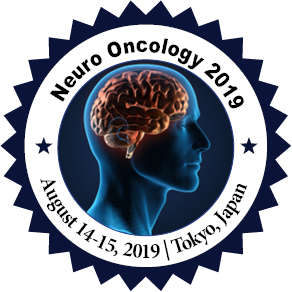Ankita Gupta
Post Graduate Institute of Medical Education and Research, India
Title: Impact of prophylactic Granulocyte-Colony Stimulating Factor (G-CSF) on acute hematological toxicity in patients of medulloblastoma receiving Craniospinal Irradiation (CSI): Interim results from a phase I study
Biography
Biography: Ankita Gupta
Abstract
This prospective study was conducted to investigate the impact of prophylactic Granulocyte-Colony Stimulating Factor (G-CSF) on acute hematological toxicity and treatment interruptions in patients of medulloblastoma receiving Craniospinal Irradiation (CSI). Patients of medulloblastoma post-surgical excision were given CSI in a dose of 36 Gy at 1.8 Gy per fraction and concurrent vincristine along with biweekly administration of G-CSF in a dose of 15 mg/kg, followed by a Posterior Fossa (PF) boost of 18 Gy. Weekly hemogram was performed for documentation of hematological toxicity and resultant treatment interruptions were noted. The results were compared with historical controls from a retrospective analysis conducted at our institute. A total of 28 patients were included in the study. Hematological toxicity was observed in 11 (39.3%) patients, of which grade 3 and grade 2 toxicities were seen in 10 and 1 patients respectively (RTOG). All these patients suffered breaks in CSI. Of these, interruptions lasting for more than 5 days were observed only in 2 (7.6%) patients. This is well below the results from our previous analysis when patients did not receive prophylactic G-CSF during CSI and 73.1% suffered treatment breaks due to hematological toxicity. We also observed that younger age (<10 years) was significantly associated with the development of hematological toxicity (p=0.028, Chi-Square), while no correlation was obtained with pre-treatment blood counts. The interim results of this study suggest that prophylactic application of G-CSF during CSI for medulloblastoma results in lower hematological toxicity and hence, less treatment interruptions. Recruitment is ongoing and whether this approach translates into improved treatment efficacy will be confirmed after the final results with longer follow-up are obtained.

